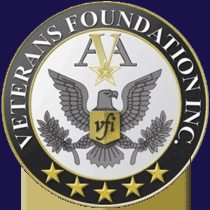R & D
| VFI has always been a leader in providing innovative and ground-breaking solutions to the variety of issues that involve our veterans, active duty military, their spouses and families. Dating to the early 80’s, VFI has been intimately involved in the research and development of projects involving Post-Traumatic Stress Disorder, homelessness, nutrition, and employment. |
VFI has:
|
VFI accepts the mantle of leadership in this new millennium in aggressively moving forward with planned programs researching and producing viable therapies to combat issues concerning Post-Traumatic Stress Disorder and its effect on children and spouses of returning veterans and the survivors of deceased veterans. |
We are proud to have Dr. Michele Linden as our director of Research & Development on this issue of such vital significance to the health and welfare of a significant and expanding portion of our society.
 Click for a message from Dr. Linden: |
“Having spent my clinical and academic career in the field of Post-Traumatic Stress Disorder (PTSD) and Crisis Intervention, I have witnessed first-hand the increase in difficulties that children face when dealing with the effects of a parent’s PTSD.
“It is a proven fact that the rate of PTSD increases during times of war [1]. Coupled with the fact that children experience a lack of emotional support and guidance from military parents [2], it is easy to see that in this day of America’s increased global military presence and extended duration of military and para-military missions,the families and children of service members are faced with a fast-spreading epidemic with potentially devastating consequences. Chief among the problems combat veteran parents experience include, but are not limited to: refusal to seek treatment for fear of psychological help harming their careers [3]; parental symptoms of PTSD [4]; physical abuse, both received by spouses or self-inflicted [5]; and limited support for dealing with the complex issues of a parent or loved one [6] suffering traumata.
“Children develop a second-hand form PTSD and, thus, have a higher risk of social, behavioral, and emotional damage for a variety of factors. Commonly referred to as Secondary PTSD, the phenomenon refers to the development of characteristic symptoms and diagnostic criteria of PTSD due to the extended exposure of another, significant person’s own symptomology. This leads to a particularly insidious after-effect of the original PTSD: Second-hand or Secondary PTSD. Some of the effects include: depression, aggression, anxiousness, and hyperactivity [7]; difficulty establishing positive attachments [8]; and a lowered incidence of establishing healthy relationships in adulthood [9].
“The potential damage done to a large and growing segment of our population is not the reward that this Country intends or desires for the children and families of those who serve. So I am proud to announce that VFI and I will be working diligently to make strides in researching the horrible consequences of Secondary or Reactive Post-Traumatic Stress Disorder, and moving to develop programs that identify the problem and to help heal and improve the lives of the children and families who are affected. I hope you support our cause.”
For more information on PTSD please go to The National Center for PTSD and to learn about helping a child who is suffering from PTSD please go to KidsHealth.org .”
Click here for Dr. Linden’s CV [PDF]
|
